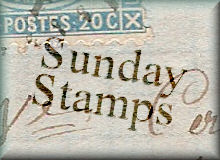
Here are two maximum cards with stamps related to the Battle of Bunker Hill that took place on June 17, 1775 during the Siege of Boston early in the American Revolutionary War. While the result was a victory for the British, they suffered heavy losses. Colonial forces were able to retreat and regroup in good order having suffered few casualties. The battle demonstrated that relatively inexperienced colonial forces were willing and able to stand up to regular army troops in a pitched battle (source: Wikipedia).
The first stamp was issued on June 17, 1959 and is part of the Liberty Issue (1954-1968) Regular Definitive Series. The 2 1/2-cent stamp shows the Bunker Hill Monument and Massachusetts Flag. The 221 feet high Bunker Hill Monument was erected to commemorate the Battle of Bunker Hill. Work on the monument was begun in 1825 and completed in 1843.
The first stamp was issued on June 17, 1959 and is part of the Liberty Issue (1954-1968) Regular Definitive Series. The 2 1/2-cent stamp shows the Bunker Hill Monument and Massachusetts Flag. The 221 feet high Bunker Hill Monument was erected to commemorate the Battle of Bunker Hill. Work on the monument was begun in 1825 and completed in 1843.

The first day of issue cancellation included a pictorial cancel (shown below) which featured a "Minute Man," the symbol of resistance during the Battle of Bunker Hill.

The stamp on the second card is the 10-cent Battle of Bunker Hill commemorative stamp issued on June 17, 1975. The stamp commemorates the 200th anniversary of the Battle of Bunker Hill and the U. S. Bicentennial. It was at this battle that the famous command, "Don't shoot until you see the whites of their eyes" was issued.

The picture on the Battle of Bunker Hill stamp is a detail from a painting "The Death of General Warren at the Battle of Bunker Hill" by John Trumbull. The full painting is shown below the stamp.












Nicely coloured sky effect. Interesting to see the same event commemorated in different ways.
ReplyDeleteVery interesting! Also interesting to see how the same event is commemorated in the 1950s, and then in the 1970s - two quite different approaches. Both stamps are really great. I like the 1950s postcard much better than the one from the 70s.
ReplyDeleteThe cards are very different styles but 20 years can make a lot of difference.
ReplyDeleteI'm learning a lot about American (and British) history from these stamps. The only history I did at school in any detail was the American War of Independence - but it looks as if I have forgotten the lot.
ReplyDeleteI'm curious ,how much is 2 1/2 cents?
ReplyDeleteWilla - Postage Journal
I was surprised to see the 2 1/2 cents, too!
ReplyDeleteA lot of these names from the wars sound familiar, but the details have become quite faded since I left school :(
Hello, I am wondering if my might be able to help me locate a few postcards. I have two cards printed from Faroy dated 1965 numbered 25-3 and 25-12. I am looking for more images that might be in this series.
ReplyDeleteIf you like, I have scanned them and can send the images to help you as well.
Stopping by pretty late after vacation... love the linen card. thank you for participating.
ReplyDelete